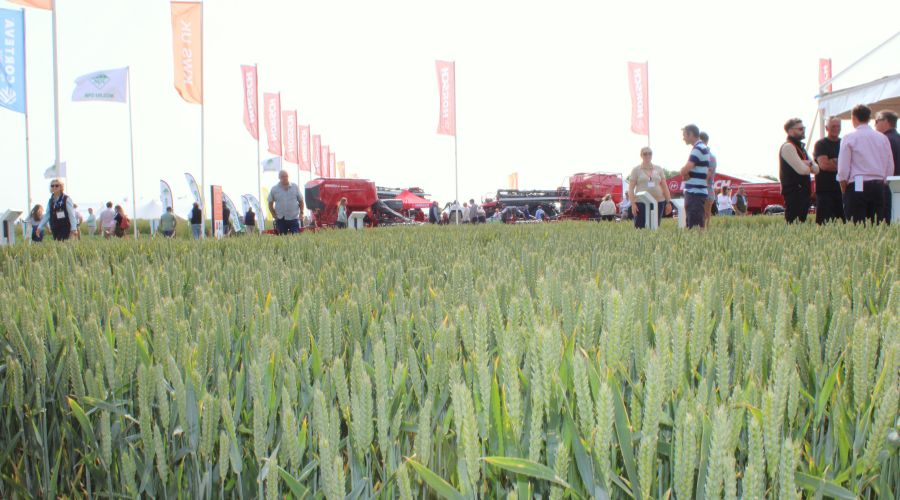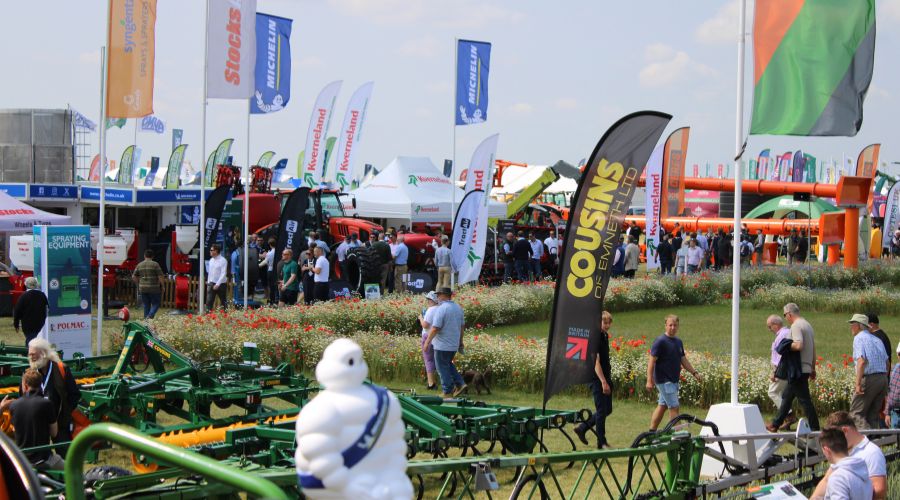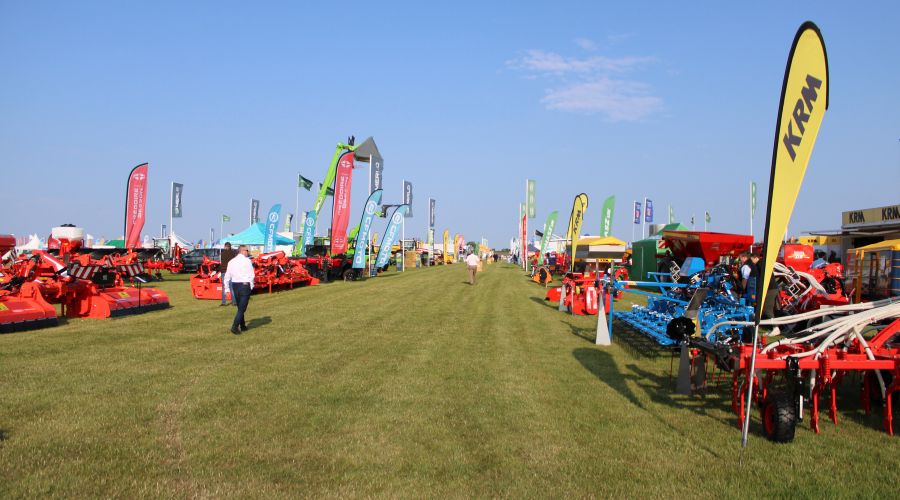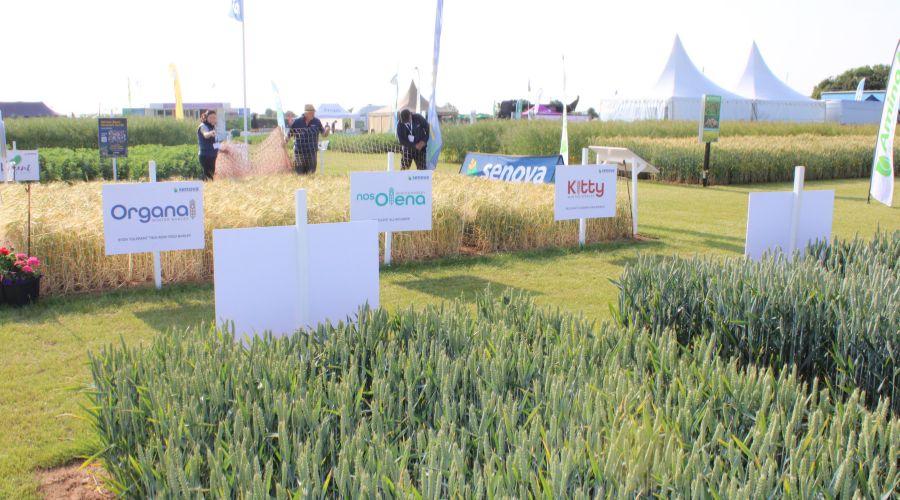Check out Cereals Event 2025 highlights: Precision, practicality and collaboration
24th June 2025
Hosted by Andrew Ward, Cereals 2025 drew a strong crowd with buyers looking for value, resilience, and adaptability.

From sprayers and drills to grain handling, soil monitoring, and GPS correction services, the emphasis was firmly on smart, user-friendly technology. Several manufacturers used the show to launch new or updated kit tailored for compliance with government grant schemes, while others focused on showcasing established workhorses that continue to earn their place in sheds up and down the country.
A handful of big names were holding back major releases ahead of Agritechnica, but the overall mood remained upbeat.
Beyond the big names, many of this year’s most engaging conversations centred on small-scale innovation – tweaks and refinements to established tools that save time, reduce input costs, or improve compatibility with regenerative practices. From retrofit kits for air seeders to tungsten-tipped parts, exhibitors were keen to show how even modest investments can have meaningful on-farm impact.
Several smaller manufacturers noted increased interest from contractors and mixed farms looking to simplify operations while remaining SFI-compliant.
Collaboration and knowledge sharing
The question of collaboration and knowledge sharing was also a recurrent theme across all parts of the event.
Whether farmer-to-farmer, farmer-to-merchant or farmer-to-general public, the message was clear: farming has to fight its own corner and tell its own story. The launch of the 2025 Your Harvest campaign at the start of day one of Cereals was a timely reminder of this.
NFU president Tom Bradshaw joined a panel of speakers early on in the day, fielding questions about the future of farming in the UK. The main message to emerge from the debate was the need for all players in the food production sector to come together and remove the obstacles to growth and development.

In his opening comments during the panel session, Mr Bradshaw told the audience: “We need to accept that the old support schemes have finished. We are going to see huge variations [of support] across the home countries, with England getting the least support. Fundamentally we need to stop talking about support and start thinking about the way that we become a sustainable industry.
“At the same time, if the threats from other parts of the world are real, then food security is essential. It is a critical part of national security, and the government needs to realise that.”
Addressing what that means for growers, fellow panelist and Norfolk farmer Mark Means added: “We need traction; that means mills and other means of food production in this country. And we don’t need the middlemen to take most of the margin. We, at the bottom of the food chain, need help to keep mills and processing plants running. And we need proper [financial] margins to make sure that we can keep pushing forward.”
Diana Overton, managing director of Frontier Agriculture, put the onus on the farmers: “Farmers need to look at what the end customer is looking for. And then we need to look at how the production companies can meet those targets.
“The food security issue is a long-term one. We are waiting for the 25-year road map. We need to show that we can be both sustainable and innovative.”
Asked how the NFU would move forward politically, Mr Bradshaw said: “We need to identify how do we unlock opportunities for productivity? We need to get government to recognise that we need food security, and we don’t need loads of cash, we just need to be enabled. If we can unlock the planning system then we can let the entrepreneurial spirit take hold.”
‘Manage change before it manages you’
Jeremy Moody, secretary and adviser to the CAAV, warned that public finances were tightening and that DEFRA may not be able to deliver on its environmental pledges.
He added: “DEFRA is realising it can’t afford all the environmental goals it accepted as its inheritance. The public finances appear to be in a worse position than last summer. And we know less about environmental management schemes now than we did two years ago.”
Mr Moody noted that ministerial language is making it clear that farmers must treat their operations as businesses, not rely on future support. Changes to the Sustainable Farming Incentive (SFI) point to a shift toward supporting smaller farms, national parks, and Areas of Outstanding Natural Beauty.
Looking ahead, he predicted that less profitable farmers may choose to let land out, creating opportunities for others to scale up and produce food more profitably. “We will have thriving businesses in the 2030s and 2040s, which are so often created in times of adversity, like now,” he said. “The most important thing will be for farmers to manage change before it manages them.”
READ MORE: Gallery: See photos from first day of Cereals Event 2025

Celebrating excellence
The event was not short of standout moments, with prestigious awards recognising talent and performance in the sector.
After four years as a finalist, Yorkshire farmer Mark Turner finally took home the top title after winning the Farm Sprayer Operator of the Year (FSOOTY). Sponsored by Syngenta, the long-running competition celebrates precision, safety and best practice in sprayer operation.
Mr Turner operates a Bateman RB35 with a 30m boom and Ag Leader terminal and joined two other UK finalists on stage for the live results.
He said: “I’m still in shock. I didn’t think I’d win after all these years of trying, and I don’t know why I put myself through it. This year the competition was tough, but it means so much to me that I’ve won.”
Meanwhile, day two highlighted genetics, with the Niab Variety Cup 2025 awarded to the oat variety, Mascani, recognised for its 21 years of success, consistency, and market dominance. First listed by AHDB in 2004 and bred at Aberystwyth, Mascani has long been favoured by the milling industry, now accounting for over 50% of the UK’s winter oat area.
“For a winter oat to win the Variety Cup is a very special moment,” said Senova’s Alison Barrow. “It’s down to the quality and consistency of this variety that it has succeeded.”

IBERS’ Dr Catherine Howarth added: “A new variety is a whole team effort, and Mascani has been a game changer. It is an exceptional quality variety, giving consistently positive results each year. The millers, merchants and farmers all like it.”
Reflecting on the event’s success, event director Alli McEntyre said the show had exceeded expectations. “From packed seminar tents to hands-on field demos and vital conversations about policy, climate, and innovation, the appetite for change and progress was clear. Cereals continues to be where the industry comes together to face the future, head-on.
“We’re already planning for 2026 – building on this year’s success to create an even more impactful event that truly reflects the evolving needs of arable farmers and the wider supply chain,” she concluded.
READ MORE: Jeremy Clarkson’s Diddly Squat Farm will host Cereals 2026
Read more arable news.
